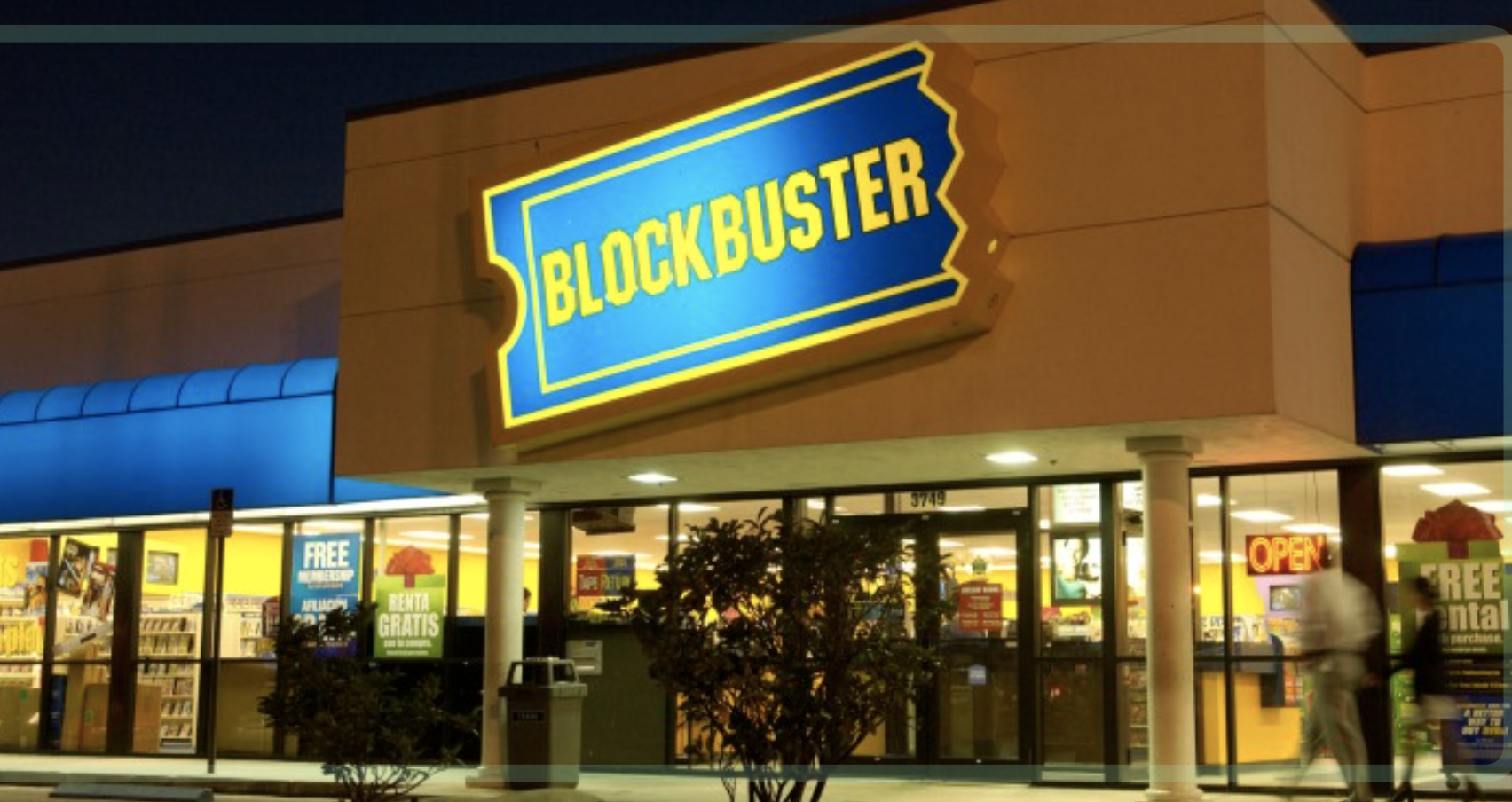Bring back the video shop.
NEWSLETTER #4 April 2023
Hello and welcome to my April newsletter - thank you for subscribing. I hope you’re having a good weekend so far.
Bring Back the Video Shop
It’s 1991, I’m 10 and it’s Friday night. That means only one thing: Blockbuster Video.
My mum takes me and my best mate Paul to choose a film. We have around 100 to pick from but we’re only interested in the new releases. In the era of Ferris Bueller’s Day Off, Bruce Willis dying hard and Val Kilmer’s Batman, this is a 10-year-old boy’s weekly highlight.
With my 20s come DVD movies via the letter box where they either get lost under the doormat or scratched to pieces as my house-mate Neil and I work our way through The Matrix Trilogy, The Lord of the Rings Trilogy and more viewings of Dude Where’s My Car than either of us would care to admit, before we realise we’ve lost the prepaid return envelope and don’t actually know where the nearest post box is anyway.
Now in my 40s, my wife and I find ourselves squashed between our ever-lengthening children entering a second hour of scrolling, flicking, trailer-watching, channel hopping and remote-grabbing, in search of something, anything, to watch; me suggesting the Pixar movies that feed my delusion they’re still delightful toddlers, them suggesting a fifteenth viewing of Yes Day.
Is it just me or does that sound like a downward spiral of enjoyment?
This isn’t about nostalgia. I have no great love for poor quality VHS, postal DVDs or, frankly, Bruce Willis.
It’s about the power of infinite convenient choice to sap our resolve.
A microcosm of the privileged yet nevertheless overwhelming number of inconsequential alternatives daily competing for our attention that paralyse us with their comparative mediocrity whilst dripping fear onto our belief that somewhere we’re missing out on something.
Choice is exhausting. Commerce knows it: one of the greatest market forces is inertia. If I don’t have to select then I won’t. And I’ll thank you for it. I already have enough choices to make every day as it is - 35,000 of them, by some counts. It’s why I’ve had the same bank since I was 13. Why I use the same toothpaste, eat the same cereal, order the same pizza. Why YouTube invented auto-play and proudly calls it a “lean-back” experience.
At best this leads to a dissatisfying night on the sofa.
At worst, it’s depleting, rendering us passive when we need to be proactive and distracting us from making the really important decisions.
To Do or Not To Do; that is the question.
And isn’t this what we fear most? Not that our lives don’t mean anything; but that they won’t end up being what what we wanted. That they weren’t by design. That we didn’t live on purpose. That we didn’t choose.
Of the narrator in his novel Lessons, Ian McEwan writes: “How easy it was to drift through an unchosen life, in a succession of reactions to events. He had never made an important decision.”
Decide is from the Latin, ‘de-caedere’. To cut off. Decisions literally slice away alternatives.
And letting go is liberating. With every ‘no’, you release yourself from ‘should’, ‘must’ and ‘need to’. You create space for ‘can’, ‘choose to’ or best of all, ‘want to’.
Great theatre is decision-making, live. Watching people chose and change in front of our very eyes is the definition of thrilling drama. In that sense then, decision-making is reverse-engineered destiny .
The good news is, we are already biased towards action; we will choose doing something over doing nothing, even when doing nothing is the most active and effective choice.
So, we have to get clear on what is not important to us so that we can focus on what is.
We must carve out and protect time for the strategic thinking and the tactical tasks that get us closer to those precious goals.
We need to trust our instincts and strengthen our resolve to better bear the weight of consequence the biggest decisions bring.
And we can to bring the video shop back to our lives by narrowing the number of concerns worthy of our decision-making attention in the first place.
Then all that’s left is the decision Amelia Earhart called the most difficult of all: “the decision to act”.
“The rest”, she said, “is mere tenacity”.
Inwards, onwards & upwards,
George
PS. If you’d like a newsletter like this in your inbox on the last day of every month, subscribe here.

